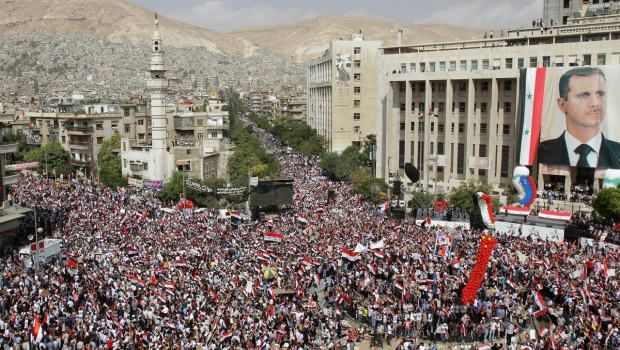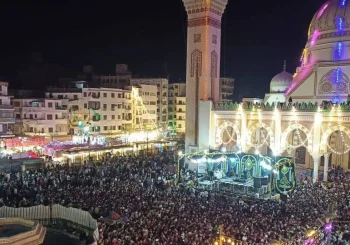
By Marwan Kamal, contributor, EgyptianStreets.com
I vividly remember sitting down with a Syrian man and his eldest son shortly after he started renting my old apartment in the northern city of Alexandria.
We discussed many topics, including his occupation, his schooling, even his ex-wife and how he met his current wife. However it was the situation in Syria that grasped the conversation.
Historically, Syria and Egypt have always been allies. Historians and Egyptians’ grandparents may even recall Syria uniting with Egypt under the United Arab Republic during Gamal Abdel-Nasser’s reign. Short lived as it was, the friendship did not end there: countless wars and cooperative activities convinced the people of Syria and Egypt that they are very much friends.
Knowing this it is no surprise how many Syrians fled to Egypt. Official reports indicate that more than 100,000 Syrians have settled in Egypt since 2011. Despite difficulties in safely leaving Syria, the 50-something-year-old man, Faisal*, his wife, and his two children, aged 10 and 13, both managed to escape the violence.
Faisal and his family traveled by car to Saudi Arabia through Jordan. Upon arrival to Saudi, he sold his car at the coast and crossed the ocean to the Red Sea in Egypt.
Syria’s revolution started like all the others in the Arab spring. Calls for democracy, justice, and equality rang out across the nation. Unlike Egypt where the country’s stability was important to the world, or Libya with no real friends, Syria was wedged between conflicts, enemies and weaponry.
It will never be clear who really fired the first shots, but regardless it snowballed into a full scale civil war, with both sides fighting for what they believed in. Earlier in the year, it seemed that the rebels had finally got the upper hand, but then, out of nowhere, Assad’s forces pushed back and re-captured many key installations. For some Syrians though, the rebels are not the future of the country.
“I liked Assad, I still do, even today,” said Faisal, sipping the hot tea that his wife had prepared for us.
I inquired into why he left so early in the conflict. He took another sip and continued. “I knew friends who joined the rebels, they told me of how some of the rebels looked foreign to them,” he said before pausing.
“Iraqi?” I asked.
“Turkish, maybe,” he whispered quietly as if someone could hear him beyond the four white walls of my apartment.
Faisal continued to tell me, how for the sake of his two little boys, he could no longer stay in Syria has violence swept over the country. Initially supporting demonstrations, the man and his family explained that calls for justice and freedom were important, but that they had no idea these calls would lead to bloodshed.

Today, Syrian opposition members have formed a Syrian authority that is widely recognized and accepted by the West – including the Arab League.
Faisal however says that despite having influence abroad, they have almost no power to influence the rebels on the ground. Even the rebel commanders had little control over many of the fighters in Syria, added Faisal whose eyes showed he was both upset and worried.
“Foreign weapons came in by the boat loads, tones” Faisal added calmly and confidently before proclaiming that the rebels were untrained and divided, “that won’t be enough, you need training too.”
The Syrian rebels were starting to lose the battle: both on the ground in the battle against Assad’s forces and in the battle for people’s hearts. Videos of atrocities and war crimes committed by rebels began leaking out more and more frequently until the video that defeated the Syrian rebel media monopoly.
A video of a man, claiming death to Bashar and his loyalists, took a bite out of dead man’s heart.
The media was in an uproar, nowhere more than the Middle East. They saw that the Syrian rebels, at least these ones cannot take power.
A foolish man may say it was by chance, but the Syrian regime was finally on a full offensive. “It was good news!” Faisal excitedly claimed.
It certainly appeared as if there were major developments, including the siege of the last rebel stronghold in Homs. However the media fell silent on Syria and moved on to other reports as the battle across Syria continued.
Earlier this week though, as if to slap the world in the face, reports of chemical attacks near Damascus by the Assad regime surfaced. Despite incomplete investigations, the world was quick to blame Syria’s regime as if to make one last push on Al-Assad.
Seeing the events unfold I couldn’t help but call Faisal again. He knew why I was calling and after the formal greetings got straight to the point.
“Why would the regime gas their own people? They have practically won, the rebels were falling apart and media attention was no longer on them,” Faisal asserted. “Those canisters…the gas ones, they are no bigger than a half meter and can easily fit in a van or even a car.”
Quickly, I started to see not only how divided the world was, but how divided Syria was. We ended the conversation on a lighter note, with talk of life and work. For Faisal – and everyone else – the coming days will be decisive in the Syrian crisis and may even tilt the scales in favour of the rebels.
* Note: Faisal is an alias. The man and his family wished to remain anonymous owing to security fears. This article does not necessarily represent the editorial policies of Egyptian Streets, nor does it necessarily represent the views of all Syrians.







Comments (2)
Reblogged this on Oyia Brown.
Reblogged this on Ned Hamson Second Line View of the News.